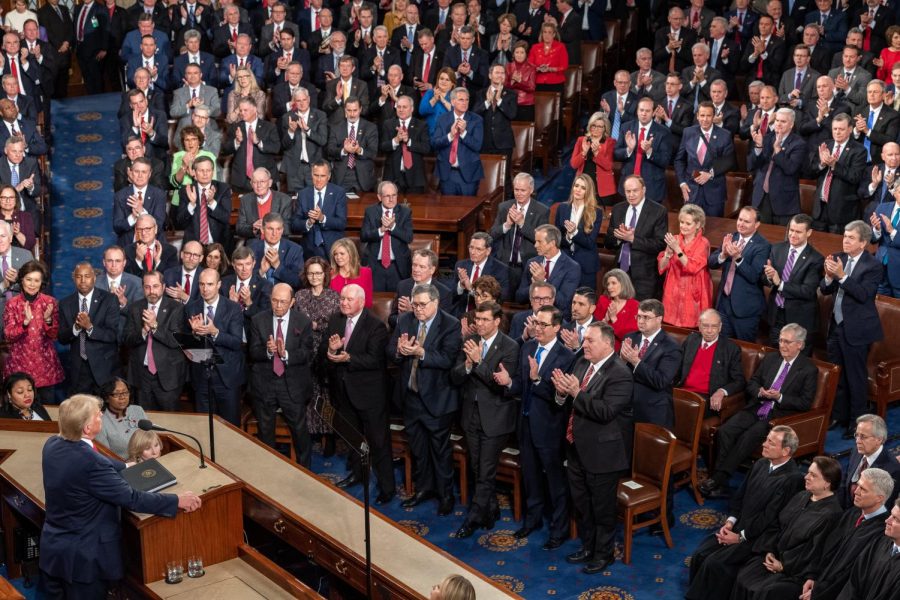Term Limits in Congress
December 11, 2020
Every two years in the House of Representatives and every six years in the Senate, there is an election for our congressional representatives. However, according to CNBC, since 1964, the incumbency rate for congressional races has been between 80% and 90%. This means that once you get elected the first time, it is almost a certainty that you will be reelected. Over time, this has led to stagnation in Congress. I believe that we should institute a 12-year limit to allow the people to have a greater say in their representatives and give more room for third party candidates.
A 12-year limit in Congress could solve many of the problems that plague it. 12 years would mean a maximum of six terms in the House of Representatives and two terms in the Senate. Although these may seem like long periods of time, the Constitution itself does not specify the amount of time that a representative can serve. The record holder for consecutive terms is John Dingell, Jr. of Michigan, who served an astounding 59 years in the House of Representatives. This is problematic for many reasons, first and foremost being that it could mean the aging Congress may have members with health issues and declining mental capabilities and can be unduly influenced.
Furthermore, this can lead to congressional representatives amassing undue amounts of power simply through seniority. Senate Majority Leader Mitch McConnell has, through his position, gained the power to block laws from going through the Senate. He was not granted this power through a national vote or even a state one, and in the past, he has used it to stop laws that were extremely popular among the people. The lack of term limits means that Senator McConnell will continue to stay in power and exert the authority he is granted solely because of seniority.
The lack of term limits in our Congress is linked to the lack of accountability among our representatives. Elections are supposed to be a referendum by the people as to whether their representatives are doing a good job. However, due to a lack of civic education and appeal via name recognition, it is often a mere formality. Congressmen and women hold immense job security, and unlike in the past, many are career politicians who specialize in reaping the rewards of their positions. Representatives can go against the best interests of their constituents because incumbency and the expenses of congressional campaigns make the possibility of them facing repercussions exceedingly low.
Even if term limits do not solve the incumbency problem, by instituting them we will be able to include new perspectives into Congress and hopefully galvanize the electorate into researching the new candidates on the ballot. New congressional representatives mean new ideas and innovative solutions to problems. This can be seen through the election of many first-time candidates in the 2018 midterms like Representative Alexandria Ocasio-Cortez and Representative Ilhan Omar who have made waves in the House of Representatives by pushing hard for the will of their constituents.
For many voters in America, the results of elections seem predetermined, and this is because the reelection of representatives they are unhappy with is almost a certainty. To place power back into the hands of the people and revitalize our election system we must institute term limits.
Photo courtesy of HOUSE.GOV

